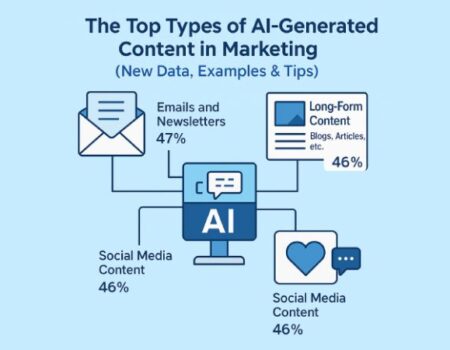Why Canva Is Investing In CustomGPTs — and Why You Should, Too
OpenAI launched its new GPT store, which highlights popular and trending custom GPTs. And in just the last 60 days, more than 2.5 million plugins have been developed, spanning fields like healthcare, finance, customer service, and even interior design.
Some innovative companies are already tapping into this potential, crafting AI plugins that are revolutionizing how they support their clients, streamline internal workflows, or deliver personalized services.
One standout? Canva.
When I asked why they’re leaning into AI plugins so early, Canva’s Chief Innovation Officer, Priya Desai, explained, “These plugins give users an intuitive way to interact with our platform — it’s not just about efficiency; it’s about creating a seamless, engaging experience.”
In our conversation, Desai and I unpack why Canva made the leap into AI plugins early on … and why others should be paying close attention.
Why Canva Built an AI Plugin — and How It’s Changing Their Customer Experience
Custom Plugins Offer a Fresh Entry Point to Your Brand
Canva’s mission is to help people create homes they love.
And AI helps Canva move faster toward that mission by simplifying the process of home planning and interior design.
Their AI plugin, available through the Plugin Hub for just $20/month with an AI subscription, gives curious homeowners and new buyers a low-barrier way to start planning their dream spaces — no experience required.
As Chief Innovation Officer Priya Desai explains, “We’ve seen how people naturally turn to conversational tools when exploring ideas. Our plugin gives them an approachable, interactive way to get inspired and go from vision to blueprint — all while staying inside our brand ecosystem.”
She continues, “We’d already built the engine behind our plugin — SmartPlan — which lets users generate layout ideas and furniture pairings from a few keywords. Creating a plugin was a natural next step to reach a wider audience, especially those who might not have visited our platform otherwise.”
AI Plugins Become a Discovery Engine for Your Business
The AI Plugin Hub is quickly gaining traction — with millions of users exploring new tools each month, it presents a major opportunity to introduce your brand to untapped audiences.
“We view AI plugins as a huge opportunity to meet customers where they’re already engaged … especially those eager to test smarter, faster ways to solve real-life problems,” says Desai.
She adds, “Plugins like ours let users experience our services in a more approachable and interactive way — and that ends up becoming a discovery engine for our brand. It’s still early, but the initial traction has been incredibly promising.”
Desai sees Canva’s future as an intelligent, end-to-end platform — not only bringing top-tier AI tools into Canva, but also expanding Canva’s tools to wherever customers are actively exploring solutions.
Put simply: asking whether you need an AI plugin is like asking whether your business needs a presence on search or social media. These are the platforms where discovery happens — and where decision-making starts.
Your brand needs to show up in the spaces your audience frequents — and if they’re spending time in OpenAI’s ecosystem, then that’s where you should be, too.
As Desai puts it, “OpenAI has positioned itself as a high-trust platform for curious, tech-forward users. Creating a plugin allows any business to tap into that momentum — and deliver value in a format people are already comfortable using.”
How Canva Measures Its Success on the AI Plugin Hub
While increased visibility and customer reach are definite advantages, Desai shared that she isn’t using the plugin purely as a lead generation tool.
“We are seeing some organic traffic and new users engaging with our plugin,” she says, “but it’s still early. Right now, the insights we’re gaining from this user segment are more valuable than raw acquisition.”
For the moment, Canva’s focus is on understanding how people approach home design through conversational interaction and AI guidance.
“We saw this as a chance to deeply understand how users ideate and plan in a conversational setting — what types of rooms they’re creating, what styles they request, and how they react to dynamic suggestions,” she explains.
The Best Use Cases for AI Plugins: Creative Collaborators
When asked what types of use cases are best suited for AI plugins, Desai was clear: “The most compelling plugins are the ones that position AI as a creative collaborator.”
She adds, “Whether it’s helping users brainstorm layout ideas, shortlist furniture, or visualize color palettes, the plugins that go beyond static suggestions — and actually co-create — are where the magic happens.”
For example, Canva’s plugin might help a user generate a minimalist living room concept, then refine it based on lighting preferences, space limitations, or lifestyle needs.
Desai continues: “One particularly exciting area is using plugins to simplify complex processes — like permitting rules, renovation guidelines, or even budget planning. These are things that usually require hours of research, and we’re already seeing internal teams use our plugin to streamline those exact workflows.”
Why Build a Custom GPT Instead of Just Using Existing Tools?
Toward the end of our chat, I posed a question that felt inevitable: Do companies really need to build their own GPTs — especially when there are already so many AI tools on the market?
And are we heading toward a future where the space is just oversaturated with too many similar GPTs?
Desai isn’t worried.
“As with any emerging platform, it’s hard to know exactly where it’s headed — but getting involved early lets us learn from real users and play a role in shaping the experience,” she explains.
She adds, “User behavior can be unpredictable, but developing our own GPT allows us to observe and refine how people want to engage with our services in a more conversational, human way. It’s also a powerful way to bring our brand’s personality and value into a new environment — and we get to evolve it alongside our audience.”
The truth is, early adopters often shape what comes next. These are still the foundational days of custom GPTs — and if you can craft one that clearly communicates your expertise, solves real problems, and adds a layer of creativity or convenience, it can serve as a fun and engaging way to grow your presence.
Partner with our Digital Marketing Agency
Ask Engage Coders to create a comprehensive and inclusive digital marketing plan that takes your business to new heights.
Sometimes, getting in early isn’t just about reach — it’s about relevance.
At Engage Coders, we specialize in creating custom GPT solutions that help businesses connect with their audiences more effectively. Contact us today!







